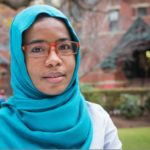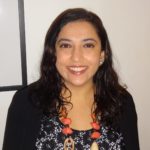The second Women Leaders in Global Health (WLGH) Conference is being held on 8-9 November 2018. The conference is committed to “celebrating and supporting women in global and public health” and “will highlight emerging and established women leaders in global health”, with a strong focus on mentoring. (1) While we appreciate and support the initiative, we would like to shed light on the need for a more inclusive approach to gender equity in global health.
A call to action published following the first WLGH conference stresses the need to increase visibility by ensuring gender balance when organizing events. (2) The suggested checklist for this increased visibility includes a note about ensuring diversity in terms of not only gender, but also of age, geographic location, and other backgrounds. (3) However, a look at this year’s WLGH conference Steering Committee shows that the vast majority of members appear to be of European heritage and reside in the global North, predominantly in the US. Only 2 out 56 members appear to be affiliated to an institution based in a low- and middle-income Country (LMIC). This depicts an alarming picture of predominantly white women from the global North taking a stage that should equally belong to women from the global South. We therefore calling for a more transparent and an inherently intersectional approach to the selection of the Steering Committee for the next Women Leaders in Global Health conference, as a means to further genuine gender equity in the global health agenda. (4)
It is encouraging to see the global momentum to address gender inequity picking up . However, it is disappointing to see a lack of true diversity in leadership positions within the field of global health even among women leaders. The movement for gender equity does not currently appear to take an intersectional approach to ensure inclusivity. Intersectionality asserts that a single social identity rarely operates alone.(5) The approach moves beyond examining an individual factor such as gender, to focus on the relationships and interactions between different social identities, such as socioeconomic status, disability/ability, race/ethnicity, and age, to understand how these interactions create interdependent forms of privilege and marginalization/oppression. (6)
We would like to raise the concern about HIC ownership of the gender equity agenda in the field of global health, despite this issue being deeply rooted in cultural norms across the globe. While we have faced barriers and marginalization due to the intersection of our gender with our nationalities, income, and age, we also fully acknowledge our privilege of education/occupation in HIC organizations. Raising this issue is vital because not all of our colleagues back home share this same privilege, and do not have platforms similar to ours. This is a true loss for the global health community, as they do not get to share their unique professional experiences in the same field we as a global community are trying to improve. We are committed to achieving gender equity in global health, and we are also committed to ensuring that it is inclusive of women from all backgrounds. Global health professionals and academics from less represented regions, often cannot find a platform to present their work and end up being excluded from panels, conference steering committees, and speakers’ lists.
Addressing this lack of diversity has no short-term fix. However, we can start by intentionally including diverse intersectional women’s voices in decision-making. Having specific conference policies on diversity can help close the gender gap among speakers and panels in a truly intersectional sense. Other first steps include advocating and supporting regional chapters of these global conferences, ensuring a diversity of host countries, a commitment by hosts to reduce visa barriers, and involving local and regional universities/institutions to reach a wider audience. Moreover, we can push for better engagement of professionals local to LMICs, scholarships with transparent quotas for less represented groups and include more diverse voices in panels and as keynote speakers. In the end, exposure to high-quality women scientists from LMICs will help address the biases that limit women’s participation from the global South.
About the authors:
 Zahra Zeinali, MD MPH, is a physician from Iran who pursued her public health degree at Johns Hopkins Bloomberg School of Public Health and focused on issues around gender and health systems. She is continuing her research with Johns Hopkins on intersectionality and women’s leadership in health systems. She is also a member of the Global Health Workforce Network Gender Equity Hub and the World Medical Association’s Junior Doctors Network. She can be reached at @zr_z
Zahra Zeinali, MD MPH, is a physician from Iran who pursued her public health degree at Johns Hopkins Bloomberg School of Public Health and focused on issues around gender and health systems. She is continuing her research with Johns Hopkins on intersectionality and women’s leadership in health systems. She is also a member of the Global Health Workforce Network Gender Equity Hub and the World Medical Association’s Junior Doctors Network. She can be reached at @zr_z
 Salma Abdalla is a physician from Sudan. She is currently a research fellow and completing a Doctor in Public Health degree at Boston University School of Public Health. Salma is interested in population health, social and commercial determinants of health with a specific focus on gender. Her current research is focused on population health science. She can be reached at @SalmaMHAbdalla
Salma Abdalla is a physician from Sudan. She is currently a research fellow and completing a Doctor in Public Health degree at Boston University School of Public Health. Salma is interested in population health, social and commercial determinants of health with a specific focus on gender. Her current research is focused on population health science. She can be reached at @SalmaMHAbdalla
 Mariam Parwaiz is a public health doctor completing her specialist training with the New Zealand College of Public Health Medicine. She is also on the Executive Council of the Public Health Association of New Zealand. She was born in Pakistan and is interested in global public health, including issues of equity, women’s leadership, and the socio-economic determinants of health. She can reached at @MariamParwaiz.
Mariam Parwaiz is a public health doctor completing her specialist training with the New Zealand College of Public Health Medicine. She is also on the Executive Council of the Public Health Association of New Zealand. She was born in Pakistan and is interested in global public health, including issues of equity, women’s leadership, and the socio-economic determinants of health. She can reached at @MariamParwaiz.
Competing interests:
We have read and understood the BMJ Group Conflicts of Interest policy and declare that we have no conflicts of interests to declare.
References
- Women Leaders in Global Health | LSHTM [Internet]. LSHTM. 2018 [cited 2018 Nov 4]. Available from: https://www.lshtm.ac.uk/research/research-action/women-leaders-global-health
- Call To Action – Women Leaders in Global Health Conference [Internet]. WLGH. 2018 [cited 2018 Nov 4]. Available from: https://www.wlghconference.org/call-to-action
- WLGHI: Event Organizer’s Checklist [Internet]. Women Leaders in Global Health Initiative. 2018 [cited 2018 Nov 4]. Available from: http://media.wix.com/ugd/ffa4bc_21c432e3226c46ca88c29b50ba64996b.pdf
- Steering Committee – Women Leaders in Global Health Conference [Internet]. Women Leaders in Global Health Conference. 2018 [cited 2018 Nov 4]. Available from: https://www.wlghconference.org/steering-committee
- Shung-King M, Gilson L, Mbachu C, Molyneux S, Muraya KW, Uguru N, et al. Leadership experiences and practices of South African health managers: what is the influence of gender? -a qualitative, exploratory study. Int J Equity Health [Internet]. 2018 Dec 18 [cited 2018 Nov 5];17(1):148. Available from: http://www.ncbi.nlm.nih.gov/pubmed/30227872
- Hankivsky O. Intersectionality 101 [Internet]. The Institute for Intersectionality Research & Policy, SFU; 2014 [cited 2018 Nov 5]. Available from: http://vawforum-cwr.ca/sites/default/files/attachments/intersectionallity_101.pdf